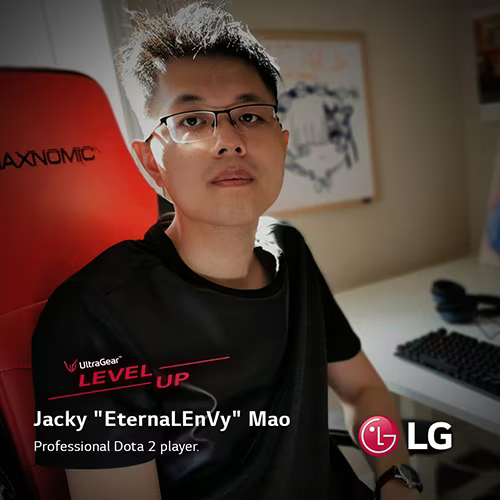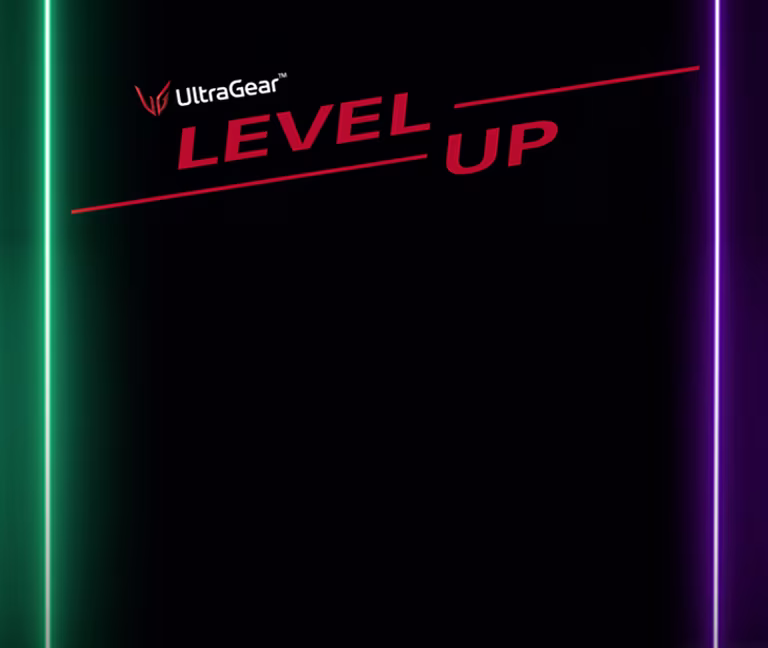We use cookies, including cookies from third parties, to enhance your user experience and the effectiveness of our marketing activities. These cookies are performance, analytics and advertising cookies, please see our Privacy and Cookie policy for further information. If you agree to all of our cookies select “Accept all” or select “Cookie Settings” to see which cookies we use and choose which ones you would like to accept.
Behind The Scenes Look Into The Life of a Pro Gamer

Jacky “EternalEnvy” Mao is one of the veterans of the competitive DOTA 2 gaming scene. His nearly decade-long resume includes such big team names as Team Secret, Fnatic, and most recently Cloud9. He’s a frequent face on the international circuit, and according to esport earnings, has earned nearly one million from tournament earnings – but it didn’t start out that way.
“The first tournament I went to, I remember I missed my flight. The train was fully booked, so I couldn’t go to the airport and now, I have no hotel room. I remember staying at the airport for 24 hours with some other people who were playing [at the tournament],” Mao recalls of his time at Dreamhack Winter 2012, which is currently the world’s largest digital festival. “We pooled each other’s money to buy a chocolate bar … We were just poor and Sweden was so expensive. That’s how it started.”
Luckily, the Canadian player would go on to have success with several tournaments, including taking top 6 in The International 2014 tournament (TI4), which is the largest tournament for competitive DOTA 2, and earning over $600,000. When the money started coming in, he admits he made some extravagant purchases.
“[My] Japan trip for sure,” he answers when asked about his most expensive purchase. “I went to Japan the first time after TI4. I think I spent $10,000 on figurines. That’s how it was back then because TI4 was my first big paycheck.” He laughs and admits that it’s been a two-year process learning to be responsible with his earnings. It is all a part of his journey as an Esports athlete.
Mao’s journey started when he dropped out of his Engineering Science program at the University of Toronto in 2012. He found that the university wasn’t what he expected, and his attention drifted back to Starcraft tournaments internationally. He was surprised to find that “there were some players in this tournament who [he] was more talented than when [he] was 14” which gave him confidence.
The competitive gaming scene for DOTA 2 in 2012 wasn’t as well established as it is now. The first international DOTA 2 tournament (TI1) had just been held the year before. It’s why his path to professional gaming was a bit unconventional.
“Most people just play and there is a leaderboard now. You get a high rank and people notice you. It’s because you can choose to be a pro-gamer that you drop whatever it is you’re doing. For me, it wasn’t like that.” Mao recounts how he wasn’t able to get his hands on an elusive DOTA 2 Beta key when it first came out and that he was polishing his skills in StarCraft 2 and DOTA 1. What he did have, however, was determination.
“It was very hectic because I needed teammates and I had to get my name out there, so I was streaming. People were making fun of me, people were praising me – there was talk about me and that’s all I needed.” With every team he joined, he was able to connect with a new player who he would eventually scout for his first team “No Tidehunter”. The team went on to win the Swedish tournament Dreamhack 2012 and give Mao his big break.
It’s a route that he wouldn’t recommend to most people. Unless you’re in school for a program that is very time-intensive, he recommends playing for “30 hours a week” and seeing how far you can climb the ranks. The athlete recalls “playing more than anyone” at the beginning of his career.
Talking about his daily training schedule, Mao says that it’s fairly typical. When he’s preparing for a tournament, he will play scrimmages or matches with his teammates the entire day and discuss strategies. When outside of a tournament schedule, he can usually be found streaming games online, meditating or working out between matches – a practice he adopted to help with his health.
“It’s an emotional rollercoaster … I used to check my blood pressure as I am trying to check up on my health. One time I was playing, and I had 180 [mm Hg] after [the match]. I started working out in-between games because it lowers it immediately after.” The American Heart Association puts readings of 180 mm Hg and higher in the “Hyper intensive Crisis” category and recommends immediate medical attention for sustained readings.
The stress from matches is not the only health concern with the competitive gaming life. Work in this field can also affect a player’s mental health. While the praise is excellent, Mao says that there is also a great deal of public perception to deal with.
“Sometimes I feel very stressed, like everyone has a pitchfork and they’re looking at me and sometimes … people looking at me actually makes me happier. I just want to show off and be a clown.” He goes on to explain that the wins are what keep him in the game, citing his win at the MLG World Finals in 2015 with Team Secret. “I don’t think there’s anything I’ve felt that was better than that moment … You experience highs that I don’t feel like I could ever experience in anything else. Once you feel that high, you’re just chasing it.”
With those highs, of course, come the lows. “EternalEnvy” is infamous online and Mao, himself, admits that he is “the most loved and the most hated.” While negative comments don’t tend to affect him, he still sets rules for himself to cope with all the attention – positive and negative.
“I don’t look at my twitch chat ever … I don’t thank my subs, I don’t look at my twitch chat. I used to not look at my Twitter at all. I also just have rules: if I’m playing a tournament, I’m not looking at reddit, I’m not looking at Twitter at all. There definitely need to be coping mechanisms, otherwise you always feel like you’re involved.” He later adds with a laugh, “But when I win a tournament, you already know I’m reading all of it for three days straight.”
Still, the veteran player says there’s nothing he would rather be doing in the world. “When the stakes are high and the win is difficult, sometimes I feel this intense happiness and self confidence. There's nothing like it.”
And the worst part about the job?
“The long travel times [to LAN tournaments] and especially the jet lag,” he jokes. “I sometimes don’t feel very human when I’m sleepy.”

